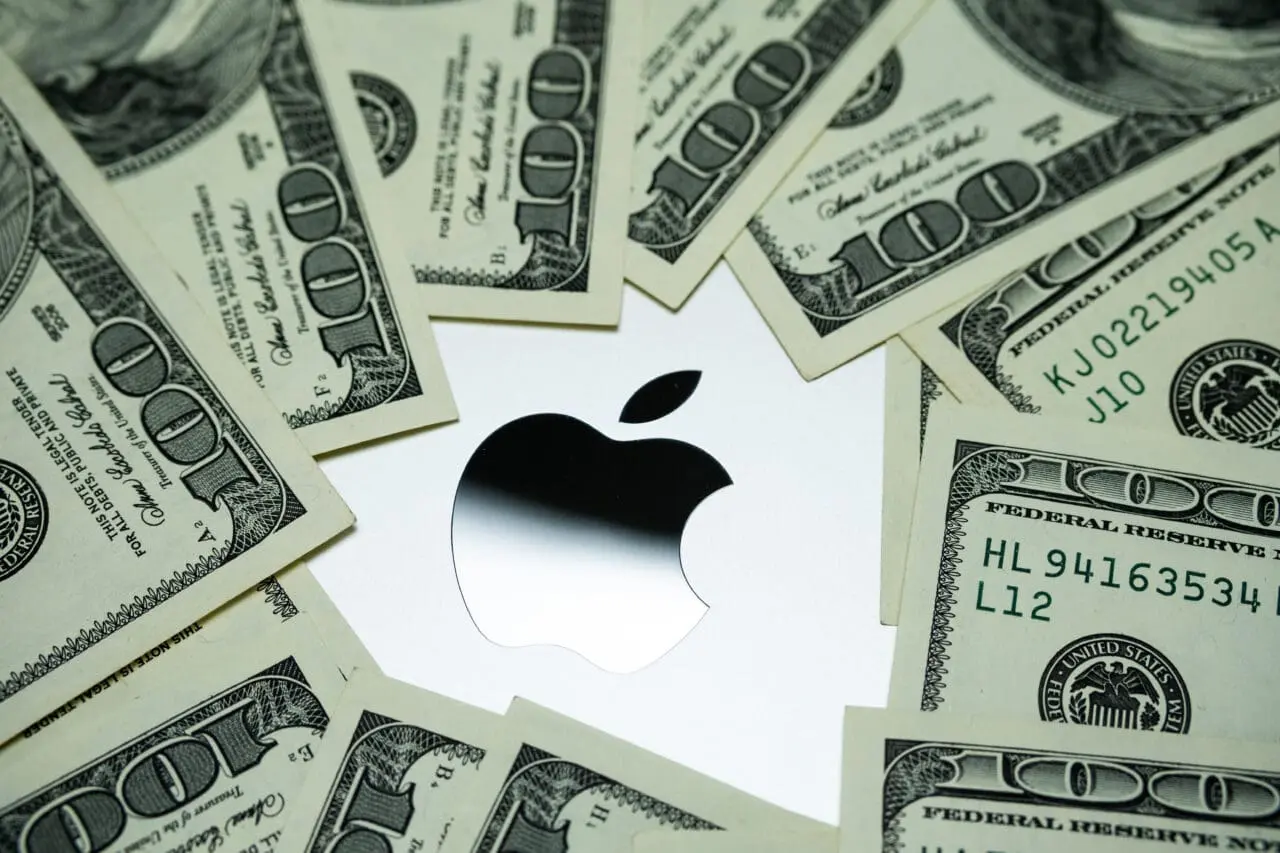

The jaw-dropping £1.5bn fine imposed on Apple by the European Union marks a pivotal moment for the music streaming industry and app developers. This action signifies a major shift in regulatory attitudes towards tech giants, their market practices, and abusive app store rules. For years, Apple’s stringent control over its ecosystem, especially the Apple App Store, has drawn scrutiny, but this fine underscores a growing impetus for change. Competitors within the music streaming and app development sectors could see this as an opportunity to level the playing field, potentially leading to more diverse offerings for consumers. Furthermore, this development could spur innovation as companies strive to differentiate themselves in a more open market. For consumers, this may translate into a wider array of services, competitive pricing, and enhanced features, fostering a healthier, more vibrant industry.
The recent update to the iPhone’s operating system, which introduces the possibility for music streaming app developers to offer their own app stores, marks a watershed moment in the evolution of mobile computing. This shift not only dismantles Apple’s long-standing monopoly over iOS app distribution but also paves the way for a fostering of innovation and competition within the app ecosystem. Users stand at the threshold of a new era, likely to be enriched with a wider variety of installable apps, potentially lower prices, and features tailored to diverse consumer needs. While this update opens up unprecedented choices for iOS users, it also necessitates a cautious approach towards security and reliability when venturing into these new digital marketplaces.
The recent shake-up in the tech industry, including Apple’s adjustments to its app store policies and the EU’s hefty fine, ushers in a new era of increased competition. This shift is not only good for consumers, who now have more diverse software options and potentially lower prices to look forward to, but it also drives innovation among tech companies. With a more level playing field created by the Digital Marketing Act, companies are motivated to push boundaries, leading to the development of cutting-edge technologies and services. This competition boosts the overall health of the tech industry, fostering a landscape where creativity and customer value are key, especially in the realm of apps distributed on Apple devices and Apple Music.
The liberalisation of the app market, particularly through Apple’s latest update and in compliance with the digital marketing act, introduces a broad spectrum of software options. This shift affects not only iOS users but also Apple Pay and music streaming subscriptions, altering the digital landscape significantly. With developers now allowed to set up their app stores, users are poised to experience an explosion of diversity in available applications. This surge in variety demands a more discerning approach from consumers, as they must now evaluate not only the functionality and aesthetics of an app but also its security and reliability within these new storefronts. Furthermore, this change heralds a new chapter in digital consumerism, where the power of choice extends beyond the mere selection of apps to include their sources as well, encouraging a more informed iOS user experience. It is crucial to inform users about these developments to ensure a more engaged user base.
The seismic shift in Apple’s app store policy, allowing developers to host their own app stores, is drastically reshaping the marketplace landscape. This move, combined with the recent substantial fine over competition concerns, marks a departure from the tech giant’s historically monopolistic practices. For decades, Apple has maintained a tight grip on its ecosystem, but these changes signal a pivotal transformation towards a more inclusive and diversified digital marketplace. This evolution not only benefits consumers with a broader range of software options but also fosters a vibrant environment of innovation and competition among developers. As Apple adapts to these changes, the market is poised to witness a surge in creative and diverse software solutions, enriching the tech ecosystem in ways previously unimaginable. The new policy opens doors for developers to host their own app stores, providing iOS users with more choices to install apps beyond Apple’s restrictions. Additionally, allowing users to select their default browser will expose users to a wider range of browsing options, enhancing competition and innovation in the digital sphere.
In a rapidly evolving digital landscape, underpinned by Apple’s recent policy revisions and heightened market competition, businesses in the European Economic Area now face the imperative of identifying and integrating the most efficient software solutions. This environment, enriched by a proliferation of app stores and a diversification of software offerings, compels businesses to strategically reassess their approach to digital tools, platforms, and app developers. The key to thriving in this new, competitive milieu lies in leveraging customised, innovative solutions that not only align with a company’s unique operational needs but also offer scalable, secure, and user-friendly features for iOS users. Consequently, businesses that proactively adapt to these changes, seeking out and employing the most cutting-edge technologies, are likely to secure a significant competitive advantage, driving growth and enhancing productivity in an increasingly complex tech ecosystem while also catering to the needs of EU users in digital marketing.
In light of recent events, involving hefty fines and policy shifts, tech giants like Apple are facing increasing scrutiny over their market practices. Regulatory bodies and consumers alike, including the European Commission, are pushing for greater transparency and fairer competition within the technology sector, in line with the Digital Markets Act and antitrust rules. This pressure is prompting significant changes in how these corporations operate, encouraging informed and effective decisions. Apple’s move to open its iOS ecosystem to alternative app stores is a monumental step towards dismantling its long-standing monopoly. This action, influenced by legal and consumer pressure, reflects a broader movement towards holding tech giants accountable for their role in shaping the digital market landscape. Such developments suggest a future where innovation and competition are not stifled by the dominance of a few but are instead facilitated by a more equitable regulatory framework.
The introduction of stringent European Union competition laws, under the Digital Markets Act, marks a significant milestone in the tech industry, particularly impacting giants like Apple and negatively affecting Apple’s terms. These regulations aim to break down monopolistic barriers and foster an environment of fair competition. For consumers, this shift heralds a new era of choice and accessibility, promoting diversity in the digital marketplace. The broader implications of these laws, however, extend beyond just increased software options. They encourage tech companies to innovate more aggressively and price their products more competitively, directly benefiting the end-users. Additionally, by holding these tech behemoths accountable, the laws ensure that market dominance does not stifle innovation or exploit consumer interests. This regulatory landscape, therefore, not only reshapes the business strategies of tech firms but also significantly enhances consumer welfare in the digital age.
With the recent seismic policy changes at Apple, the future landscape of app stores is set for a remarkable transformation. The tech giant’s move to allow third-party app stores on its devices represents a pivotal shift towards a more open digital ecosystem. This decision is anticipated to catalyse a wave of innovation and competition, giving consumers unprecedented access to a diverse range of applications. Developers, freed from the constraints of a singular marketplace, can now explore new distribution channels, thus potentially lowering costs and enhancing app visibility. However, this liberalisation also introduces challenges, particularly in maintaining app security and ensuring user privacy. As Apple negotiates these evolving dynamics while being properly accounted for, the industry awaits the broader implications for digital marketplaces, including the potential impact on antitrust rules and unfair trading conditions. The expectation is not just a proliferation of app stores but an era where quality, security, and user experience become the distinguishing factors for success in a more competitive digital environment.

This website uses cookies to improve your experience. Choose what you're happy with.
Required for the site to function and can't be switched off.
Help us improve the website. Turn on if you agree.
Used for ads and personalisation. Turn on if you agree.
This website uses cookies to improve your experience. Choose what you're happy with.
Required for the site to function and can't be switched off.
Help us improve the website. Turn on if you agree.
Used for ads and personalisation. Turn on if you agree.